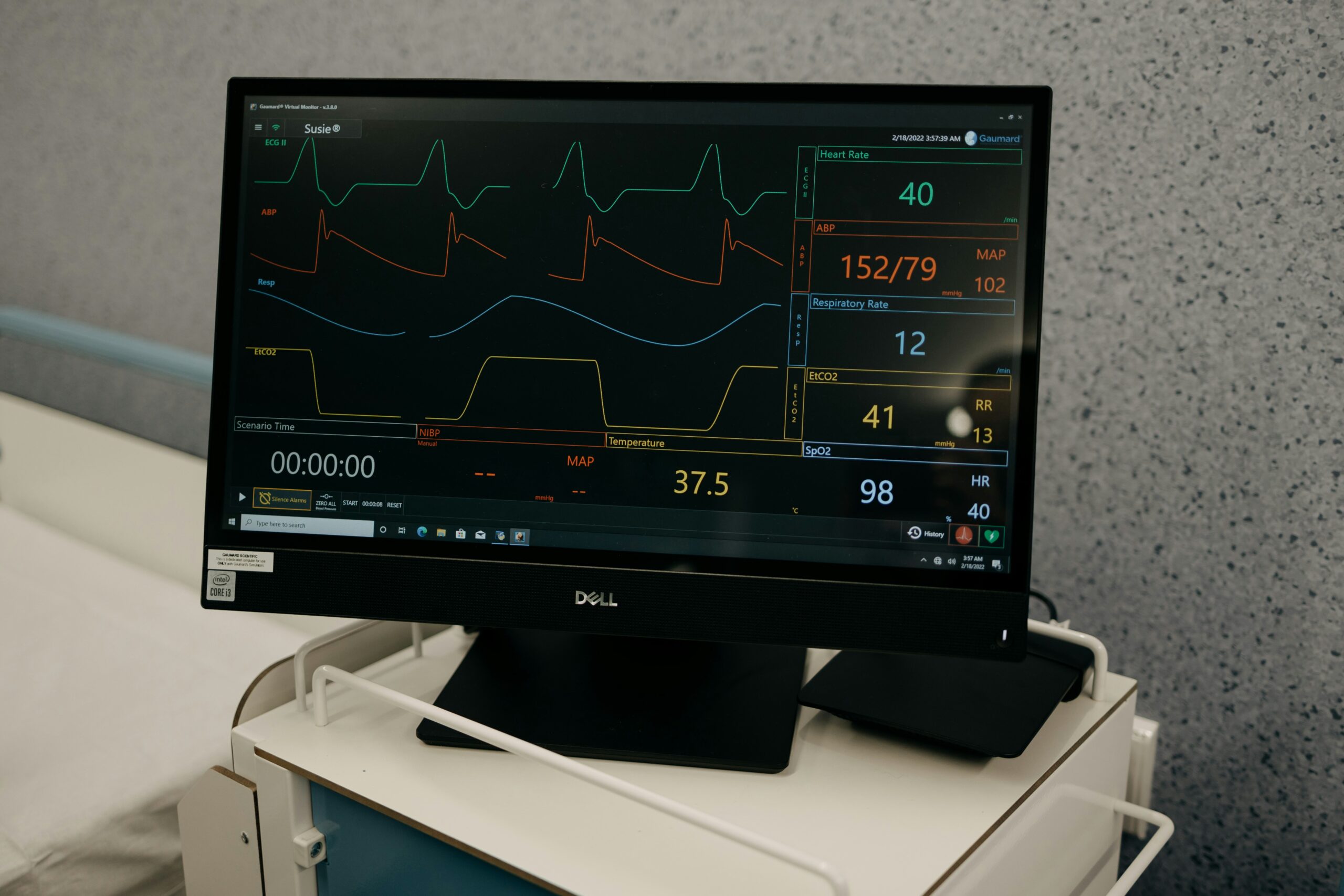
A New Horizon: Medication Innovations for Congestive Heart Failure
Patient-Centered Care with Advanced Medications
A new medication for congestive heart failure is offering hope to millions of patients living with this chronic condition. As heart failure continues to be a major health challenge worldwide, recent pharmaceutical breakthroughs are paving the way for more effective and targeted treatments.
In the past decade, we’ve seen a significant shift in how we approach CHF management. Traditional treatments have focused primarily on symptom relief and slowing disease progression. However, with the advent of new medications, the focus is shifting towards enhancing the quality of life and improving clinical outcomes. This patient-centered care approach is at the heart of recent innovations.
One such innovation is a class of drugs known as SGLT2 inhibitors. Originally developed for managing diabetes, these medications have shown remarkable benefits for heart failure patients, including those with preserved ejection fraction (a measure of heart function). The mechanism is intriguing—while they help control blood sugar, they also facilitate the removal of excess fluid from the body, reducing the heart’s workload and improving symptoms in CHF patients. This dual benefit exemplifies the kind of multifaceted approach that modern medicine strives for. Read more in the American College of Cardiology
Moreover, these advanced medications are not just about managing symptoms. They have the potential to alter the disease’s trajectory. For instance, recent clinical trials have demonstrated that these drugs can significantly reduce the risk of hospitalization for heart failure and cardiovascular death. It’s a promising development that underscores the importance of integrating new science into everyday patient care.
Why does this matter to you? Well, if you or a loved one is dealing with CHF, understanding these advancements could be life-changing. The introduction of new medications for congestive heart failure means more personalized treatment plans and, ultimately, a better quality of life. It also means fewer hospital visits and a greater sense of normalcy in day-to-day activities.
As we embrace these innovations, it’s essential to stay informed and engaged with your healthcare provider. Discussing the potential benefits and risks of new treatments is crucial in crafting a care plan that aligns with your unique needs and lifestyle. Remember, the goal is not just to add years to life but life to years.
In conclusion, the landscape of congestive heart failure management is evolving rapidly, moving towards more effective, patient-centered care. The latest advancements in medication bring renewed hope and are a testament to the power of modern medicine in transforming lives. As we continue on this journey, staying informed and proactive will be key to harnessing the full potential of these groundbreaking treatments.
Reference: Packer, M. (2020). Heart Failure and SGLT2 Inhibitors: The Beginning of a New Era. The New England Journal of Medicine, 382(11), 1168-1170.
Breaking Ground: Exploring the Latest Medication for Congestive Heart Failure
Unveiling Cutting-Edge Treatments
The world of cardiovascular medicine is buzzing with excitement as we stand at the threshold of groundbreaking advancements in the treatment of congestive heart failure (CHF). If you’ve ever wondered what the future holds for those grappling with this condition, the answer lies in the new medication for congestive heart failure that is reshaping the landscape of heart health management.
Picture this: a medication that not only alleviates symptoms but also targets the underlying mechanisms of heart failure. This is precisely what the latest therapeutic options aim to achieve. One such promising class of drugs is the angiotensin receptor-neprilysin inhibitors (ARNIs). These medications are at the forefront of CHF treatment due to their unique dual-action capability—combining the effects of two established heart failure treatments into one.
ARNIs work by enhancing the heart’s efficiency and reducing stress on the cardiovascular system. They achieve this by blocking the effects of certain hormones that can worsen heart failure while simultaneously promoting the beneficial effects of others that help the heart function more effectively. This novel mechanism has shown impressive results in clinical trials, leading to reduced mortality rates and fewer hospitalizations for heart failure, a significant win for patients and healthcare systems alike.
But how does this translate into real-world benefits? For many, it means more energy to engage in daily activities without the constant shadow of fatigue. It means fewer nights spent in hospital beds and more spent at home with loved ones. And perhaps most importantly, it signifies a shift towards a prolonged and improved quality of life.
The introduction of ARNIs is just one example of how new medications for congestive heart failure are breaking new ground. As we continue to explore these cutting-edge treatments, it’s crucial to understand that the journey doesn’t stop here. Researchers are tirelessly working to develop even more advanced therapies that target different aspects of heart failure, offering hope for those who once faced limited options.
For individuals with CHF, staying informed about these emerging treatments is key. Engaging in open dialogue with your healthcare provider can help you navigate the evolving landscape of heart failure management. Discussing whether these new medications might be suitable for you can open doors to improved outcomes and a brighter future.
In conclusion, the era of cutting-edge treatments for congestive heart failure is here, and it’s changing the way we approach this complex condition. With new medications on the horizon, patients can look forward to a future where managing CHF is not just about surviving, but thriving.
Reference: McMurray, J. J. V., Packer, M., Desai, A. S., Gong, J., Lefkowitz, M. P., Rizkala, A. R., Rouleau, J. L., Shi, V. C., Solomon, S. D., Swedberg, K., & Zile, M. R. (2014). Angiotensin–Neprilysin Inhibition versus Enalapril in Heart Failure. The New England Journal of Medicine, 371(11), 993-1004.
The Future of Heart Care: Advancements in Medication for CHF
Looking Ahead: Explore the Exciting Possibilities
When it comes to heart health, the future is looking brighter than ever, thanks to the remarkable advancements in medication for congestive heart failure (CHF). As we stand on the brink of a new era in cardiovascular medicine, the possibilities are both exciting and transformative, offering renewed hope to millions of patients worldwide.
Advancements in CHF treatment are not just about refining existing therapies—they’re about reimagining what’s possible. One of the most promising areas of research is the development of precision medicine approaches tailored to the unique genetic and molecular profiles of individuals. This personalized strategy holds the potential to revolutionize how we treat CHF, ensuring that each patient receives the most effective therapy based on their specific needs.
Imagine a future where a simple genetic test could guide the selection of medications, enhancing both efficacy and safety. This approach is already taking shape, with researchers focusing on biomarkers that predict how patients will respond to different treatments. By identifying these genetic indicators, healthcare providers can better tailor therapies, minimizing adverse effects and maximizing benefits.
Another exciting frontier in CHF medication is the exploration of novel targets within the heart’s molecular pathways. Researchers are investigating how to manipulate these pathways to improve heart function and slow disease progression. For instance, gene therapy, an innovative approach that modifies or replaces faulty genes, is showing promise in early studies. While still in its infancy, this technology could one day provide a cure rather than just symptom management.
Furthermore, the integration of digital health technologies with medication regimens is paving the way for even more effective CHF management. Wearable devices and mobile applications are being developed to monitor patients’ vital signs and medication adherence in real time. This data-driven approach allows for timely interventions, preventing complications and improving outcomes.
As we look ahead, the collaboration between scientists, clinicians, and patients is crucial in driving these innovations forward. Continued research and clinical trials will be vital in translating these advancements into everyday practice. For patients, staying informed and actively participating in their care can help harness the full potential of these groundbreaking developments.
In conclusion, the future of congestive heart failure treatment is teeming with possibilities, thanks to advancements in medication and technology. As we move towards a more personalized and precise approach to care, patients can look forward to a future where managing heart failure is not just about prolonging life but enhancing its quality. With new medications and innovative strategies on the horizon, the journey towards a healthier heart is one filled with hope and promise.
Reference: Khera, A. V., & Kathiresan, S. (2017). Genetics of coronary artery disease: Discovery, biology and clinical translation. Nature Reviews Genetics, 18(6), 331-344.
Embracing Innovation: The Impact of New Medication on CHF Management
Enhancing Treatment Strategies: Understanding How New Medications are Revolutionizing CHF Management
A new medication for congestive heart failure is offering hope to millions of patients living with this chronic condition. As heart failure continues to be a major health challenge worldwide, recent pharmaceutical breakthroughs are paving the way for more effective and targeted treatments.
Traditionally, CHF treatment has relied on a combination of lifestyle changes, diuretics, and medications that help improve heart function. However, these conventional approaches often fell short in halting disease progression or significantly enhancing quality of life. Enter the new wave of medications that are not only addressing symptoms but also targeting the complex pathophysiology of heart failure itself.
One standout in this innovative lineup is the mineralocorticoid receptor antagonists (MRAs). These drugs have shown remarkable efficacy in reducing mortality and hospitalization rates among CHF patients. By blocking the effects of aldosterone—a hormone that can contribute to heart damage—MRAs help reduce fluid retention and improve heart function. This class of medications is a testament to how a deeper understanding of disease mechanisms can lead to more effective treatments. National Institutes of Health – Role of MRAs in Heart Failure
Another promising development is the use of combination therapies that leverage the strengths of multiple drug classes. For instance, combining SGLT2 inhibitors with traditional CHF medications has been shown to enhance overall heart health and reduce the burden of comorbidities such as diabetes. These combination regimens are paving the way for more comprehensive and effective treatment plans.
But how do these advancements translate into everyday life for those with CHF? For many, it means fewer limitations on daily activities and a renewed sense of vitality. The ability to manage symptoms more effectively translates to less time in the hospital and more time enjoying life. Moreover, these innovations are empowering patients, providing them with a broader array of options tailored to their specific health needs.
However, the journey doesn’t end with the introduction of these new medications. Educating patients and healthcare providers about these options is crucial for optimizing treatment strategies. Understanding how these drugs work, their potential side effects, and how they fit into an individual’s overall care plan is key to maximizing their benefits.
In conclusion, the impact of new medication on CHF management is profound, reshaping treatment paradigms and offering a brighter outlook for patients. As we continue to embrace these innovations, staying informed and engaged in your healthcare decisions will be essential in navigating this exciting landscape. With each breakthrough, we’re moving closer to a future where managing congestive heart failure is not just about survival, but thriving.
Reference: Pitt, B., Zannad, F., Remme, W. J., Cody, R., Castaigne, A., Perez, A., Palensky, J., & Wittes, J. (1999). The effect of spironolactone on morbidity and mortality in patients with severe heart failure. The New England Journal of Medicine, 341(10), 709-717.
Beyond Conventional Wisdom: Unveiling New Medication Strategies for CHF
Charting New Territories: Navigating the Unconventional Path to Improved CHF Care with Advanced Medication Strategies
In the realm of congestive heart failure (CHF) management, breaking free from conventional wisdom has paved the way for groundbreaking strategies that are transforming patient care. As we venture into this new territory, the introduction of advanced medications for congestive heart failure is redefining what’s possible, offering a fresh perspective on managing this complex condition.
Traditionally, CHF management has relied on a tried-and-true set of practices, focusing on symptom relief and lifestyle modifications. However, the dynamic nature of medical research has opened up unconventional paths, leading to the development of innovative medication strategies that are reshaping how we approach heart failure care.
A prime example of this shift is the exploration of neprilysin inhibitors combined with angiotensin receptor blockers—an approach that embodies the unconventional yet highly effective strategy in CHF treatment. This combination not only addresses the traditional routes of heart failure management but also introduces a novel mechanism that enhances the heart’s ability to pump blood efficiently. By inhibiting neprilysin, these medications prevent the breakdown of beneficial peptides, offering a protective effect on the heart and blood vessels.
Furthermore, the use of non-pharmacologic therapies in conjunction with new medications is gaining traction. For instance, devices such as cardiac resynchronization therapy (CRT) are being integrated into treatment plans to optimize heart function. When combined with advanced medications, these devices provide a synergistic effect, improving both cardiac output and overall quality of life.
Another unconventional strategy gaining attention is the focus on early intervention and prevention. Identifying at-risk individuals and initiating treatment before the onset of severe symptoms is becoming a cornerstone of modern CHF management. This proactive approach not only delays disease progression but also reduces the risk of complications, highlighting the importance of early and targeted intervention.
As we chart these new territories, it’s crucial for patients and healthcare providers to engage in open dialogue about these emerging strategies. Understanding the rationale behind unconventional approaches and how they integrate with traditional treatments can empower patients to make informed decisions about their care.
In conclusion, the unveiling of new medication strategies for congestive heart failure marks a pivotal moment in cardiovascular medicine. By embracing unconventional paths and integrating advanced therapies, we are redefining what it means to manage CHF. As we continue to explore these new frontiers, staying informed and proactive will be key to unlocking the full potential of these innovative strategies, ultimately leading to improved outcomes and a better quality of life for those affected by heart failure.
Reference: McMurray, J. J. V., Packer, M., Desai, A. S., Gong, J., Lefkowitz, M. P., Rizkala, A. R., Rouleau, J. L., Shi, V. C., Solomon, S. D., Swedberg, K., & Zile, M. R. (2014). Angiotensin–Neprilysin Inhibition versus Enalapril in Heart Failure. The New England Journal of Medicine, 371(11), 993-1004.
Also read in our article: Managing Arrhythmia and Atrial Fibrillation: Expert Insights


